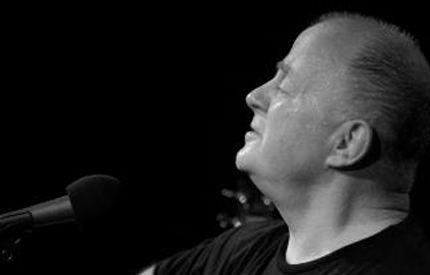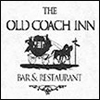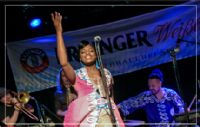Ordinary Men
Date: 22/03/2013
Gig Review

Christy Moore and Declan Sinnott have been doing their thing for a while now, and show little sign of slowing down. While their repertoire is mostly subdued and humble, they continue to create an energy which follows them from venue to venue, and is unique to their act.
Audiences feel like they know Christy; at least thatŌĆÖs how it seems.
I suppose that is to be expected from a songwriter, folk singer and balladeer that has always managed to stay local, think local and sing local.
While the Clancy Brothers may be associated with the US and the Pogues with the punk scene in ŌĆś80s London, Christy has always kept to his roots. Collecting, recording and singing songs for around fifty years, his repertoire covers the Troubles, the Celtic Tiger, unemployment, alcoholism, war, politics and, ŌĆśIrishnessŌĆÖ, for want of a better word.
Perhaps this is why audiences have warmed to him so much over the years. It is something that is apparent at every Christy show, and tonight at the Waterfront is no different.
As if to make the point, he and Declan open with Missing You, a song about a homeless Irishman living in London who canŌĆÖt afford the trip back home.
The closeness is felt and reciprocated by the audience: from the continuous shout-outs, requests and sing-alongs, to the rapturous cheers during Joxer Goes To Stuttgart, as the song describes Ray HoughtonŌĆÖs goal against England at the 1988 World Cup.
Unfortunately, however, tonight the sense of familiarity encourages one drunken heckler to shout incomprehensibly at the opening of Nancy Spain, only the second song in, causing Christy to stop, tut and begin again anew.
This is made all the more intrusive and nonsensical when, three songs later, the same voice articulates a particularly belligerent and amnesic request: ŌĆ£Nancy F**kinŌĆÖ SpainŌĆØ.
Sighs echo around the Waterfront Hall.
And while the proclamation ŌĆ£Christy, I wish you were my DaŌĆØ prompts mild amusement across the audience, the singerŌĆÖs reply; ŌĆ£IŌĆÖm glad IŌĆÖm notŌĆØ, has the audience in hysterics.
The heckler relents, and although the rousing choruses of Delrium Tremens or Smoke And Strong Whiskey may drown out the inanity, quieter songs like Beeswing or North And South, donŌĆÖt disguise the comments quite as well.
Eventually, thankfully, the duo is left in peace, and the heckler seems subdued; so much so that, upon his re-emergence, Christy comments disappointingly; ŌĆ£I thought you were away home.ŌĆØ
But tonight is about the rest of the audience, and the set list seems to be purposely tailored towards this Ulster crowd. The Other Side speaks to any Tyrone natives, while the mournful Minds Locked Shut pulls us all in, as the song concludes with a list of the civil rights campaigners shot by British soldiers on Bloody Sunday.
The mention of Short Strand in Viva La Quintal Brigada gets a round of cheers, and Back Home In Derry and McIlhatton hark back to the musical and lyrical talents of the republican hunger striker, Bobby Sands.
Christy may sing of the Troubles, but he does so elegantly, and without hyperbole. This isnŌĆÖt the Wolfe Tones, after all. Far from republican rebel music, the songs he has collected and transcribed over the years simply reflect his keen eye for social injustice, along with an appetite for recording the voices of ordinary people. The Cockle Pickers Of Morcambe Bay, about Chinese workers killed by the rising tide on the northwest coast of England, proves the point.
Ordinary Man, a lament about unemployment in ThatcherŌĆÖs Britain, perhaps fits this ideal best of all.
ItŌĆÖs not all politics, however: the audience is transported to coffee houses and red light districts in Weekend In Amsterdam, which is sung entirely acapella, and taken speeding down a country lane, Garda├Ł in pursuit, in My Little Honda 50.
A short encore follows Ride On, while Christy and Declan return to close the evening with a cover of Trent ReznorŌĆÖs ŌĆśHurtŌĆÖ, aŌĆÖ la Johnny Cash, and the lullaby-like Sonny. ŌĆ£Myself and Declan prefer a more subdued finish,ŌĆØ Christy jokes.
Hecklers aside, it is a good set, and around two hours in length at that. Christy and Declan seem to improvise their way through their time on stage, with nods and winks to signal the end of songs, or to suggest that it might be time for a guitar solo.
It always feels like a pub session, and I suppose that is what makes audiences come back for more. The night finishes with Christy shaking hands at the front of the stage and yelling ŌĆ£good night everybodyŌĆØ, before retiring. This humility is the sign of a true folk singer, as one who has never distanced himself from his audience, his country or his people.
Christy and Declan return to the Waterfront on 3-4 May, and it will be hard to resist the temptation to head along; if only to hear it this time without the running commentary.
By Iain Todd
Audiences feel like they know Christy; at least thatŌĆÖs how it seems.
I suppose that is to be expected from a songwriter, folk singer and balladeer that has always managed to stay local, think local and sing local.
While the Clancy Brothers may be associated with the US and the Pogues with the punk scene in ŌĆś80s London, Christy has always kept to his roots. Collecting, recording and singing songs for around fifty years, his repertoire covers the Troubles, the Celtic Tiger, unemployment, alcoholism, war, politics and, ŌĆśIrishnessŌĆÖ, for want of a better word.
Perhaps this is why audiences have warmed to him so much over the years. It is something that is apparent at every Christy show, and tonight at the Waterfront is no different.
As if to make the point, he and Declan open with Missing You, a song about a homeless Irishman living in London who canŌĆÖt afford the trip back home.
The closeness is felt and reciprocated by the audience: from the continuous shout-outs, requests and sing-alongs, to the rapturous cheers during Joxer Goes To Stuttgart, as the song describes Ray HoughtonŌĆÖs goal against England at the 1988 World Cup.
Unfortunately, however, tonight the sense of familiarity encourages one drunken heckler to shout incomprehensibly at the opening of Nancy Spain, only the second song in, causing Christy to stop, tut and begin again anew.
This is made all the more intrusive and nonsensical when, three songs later, the same voice articulates a particularly belligerent and amnesic request: ŌĆ£Nancy F**kinŌĆÖ SpainŌĆØ.
Sighs echo around the Waterfront Hall.
And while the proclamation ŌĆ£Christy, I wish you were my DaŌĆØ prompts mild amusement across the audience, the singerŌĆÖs reply; ŌĆ£IŌĆÖm glad IŌĆÖm notŌĆØ, has the audience in hysterics.
The heckler relents, and although the rousing choruses of Delrium Tremens or Smoke And Strong Whiskey may drown out the inanity, quieter songs like Beeswing or North And South, donŌĆÖt disguise the comments quite as well.
Eventually, thankfully, the duo is left in peace, and the heckler seems subdued; so much so that, upon his re-emergence, Christy comments disappointingly; ŌĆ£I thought you were away home.ŌĆØ
But tonight is about the rest of the audience, and the set list seems to be purposely tailored towards this Ulster crowd. The Other Side speaks to any Tyrone natives, while the mournful Minds Locked Shut pulls us all in, as the song concludes with a list of the civil rights campaigners shot by British soldiers on Bloody Sunday.
The mention of Short Strand in Viva La Quintal Brigada gets a round of cheers, and Back Home In Derry and McIlhatton hark back to the musical and lyrical talents of the republican hunger striker, Bobby Sands.
Christy may sing of the Troubles, but he does so elegantly, and without hyperbole. This isnŌĆÖt the Wolfe Tones, after all. Far from republican rebel music, the songs he has collected and transcribed over the years simply reflect his keen eye for social injustice, along with an appetite for recording the voices of ordinary people. The Cockle Pickers Of Morcambe Bay, about Chinese workers killed by the rising tide on the northwest coast of England, proves the point.
Ordinary Man, a lament about unemployment in ThatcherŌĆÖs Britain, perhaps fits this ideal best of all.
ItŌĆÖs not all politics, however: the audience is transported to coffee houses and red light districts in Weekend In Amsterdam, which is sung entirely acapella, and taken speeding down a country lane, Garda├Ł in pursuit, in My Little Honda 50.
A short encore follows Ride On, while Christy and Declan return to close the evening with a cover of Trent ReznorŌĆÖs ŌĆśHurtŌĆÖ, aŌĆÖ la Johnny Cash, and the lullaby-like Sonny. ŌĆ£Myself and Declan prefer a more subdued finish,ŌĆØ Christy jokes.
Hecklers aside, it is a good set, and around two hours in length at that. Christy and Declan seem to improvise their way through their time on stage, with nods and winks to signal the end of songs, or to suggest that it might be time for a guitar solo.
It always feels like a pub session, and I suppose that is what makes audiences come back for more. The night finishes with Christy shaking hands at the front of the stage and yelling ŌĆ£good night everybodyŌĆØ, before retiring. This humility is the sign of a true folk singer, as one who has never distanced himself from his audience, his country or his people.
Christy and Declan return to the Waterfront on 3-4 May, and it will be hard to resist the temptation to head along; if only to hear it this time without the running commentary.
By Iain Todd




































